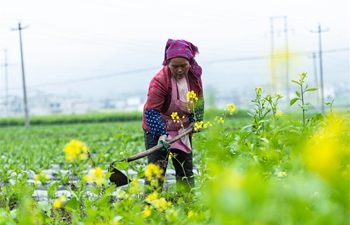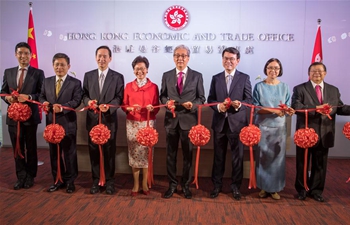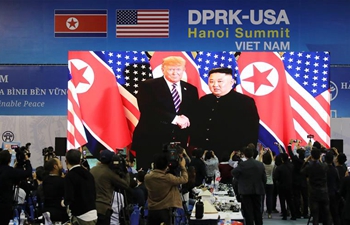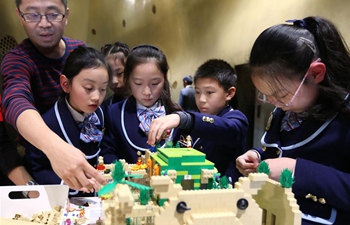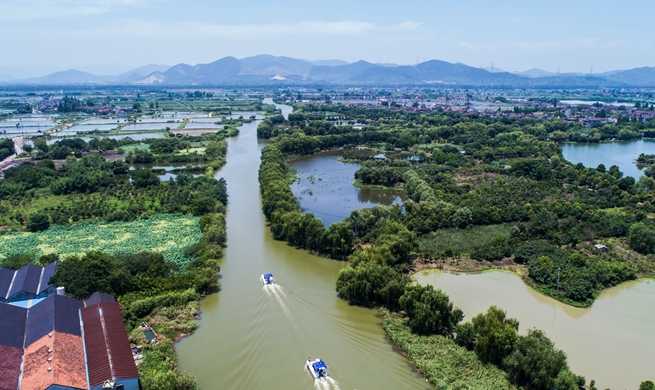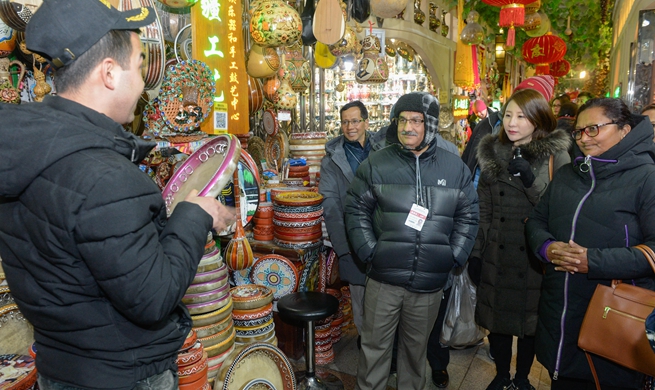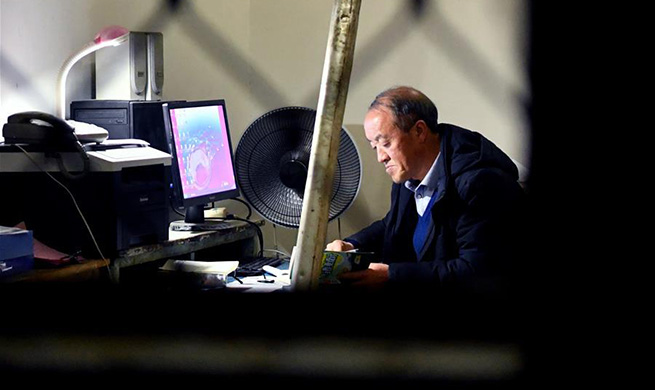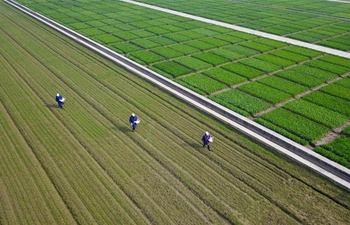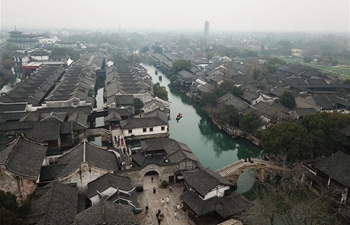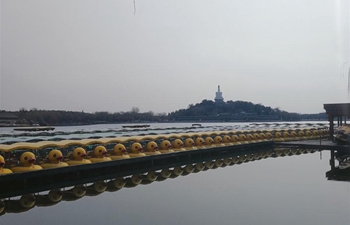by Xinhua writers Bai Xu, Yue Dongxing and Pan Xiangyue
CANBERRA, March 1 (Xinhua) -- The Chinese economy is shifting toward more sustainable and high-quality growth, Jane Golley, associate professor at the Australian National University and acting director of the Australian Center on China in the World, said.
Inevitable economic slowdown is actually positive for the Chinese economy, shifting it toward a more sustainable and high-quality growth, Golley told Xinhua in an interview.
"Six percent or even 5 percent of growth is ... not only acceptable, but places China as one of the highest growing countries in the world," she said.
Golley also gave positive comments on the economic measures taken by the Chinese government, like the supply-side reform.
"If the supply-side reform means improving the quality of labor and capital inputs, along with updating technology and improving regulations, then lots of positive things can come from it," she said.
"As an example, efforts to slow down the growth of credit to state enterprises and local governments will help to reduce China's debt problems. That will be great for the Chinese economy and for the rest of the world as well," she added.
Golley also noted that promoting and expanding green economy would be compatible with China's domestic goals of reducing its emissions, which would also be fantastic for the global environment.
Talking about the structural transformation and industrial upgrading, she viewed it as a natural consequence of economic growth and development.
"Rising income in China boosts their demand for imports from the rest of the world, including tourism and education in Australia, two of our biggest exports to China apart from agricultural and mining sectors. So there are lots of benefits of industry upgrading, both within China and abroad," Golley said.
Last year marked the 40th anniversary of China's reform and opening-up. "These four decades have been the most dramatic transition that any economy has experienced in modern history," Golley said. "It has so many win-win stories to tell."
However, she recognized nowadays as a difficult time, with "a lot more tension in the global economy, and also significant internal challenges in China."
"So it's a really pivotal time for the Chinese government to implement policies and find ways to make the most of global economy and to continue to ensure win-win outcomes in the future as well," she said.
Golley hoped that China could still "be committed to a global trading system and to the principles of free trade that have underpinned China's and the rest of the world's prosperity in the past."
In order to enhance connectivity among countries and regions, Chinese President Xi Jinping proposed the Belt and Road Initiative, which "has potential to transform the global economic landscape not only in China's favor, but also in favor of the regions where Chinese-led infrastructure development creates new access to new markets and potentially triggers sustainable growth into the future," Golley said.
Last year Victoria became the first Australian state to sign a memorandum of understanding on the Belt and Road Initiative with China. And the China-Australia Free Trade Agreement was fully implemented on Jan. 1 this year, which means that key exports from Australia including wine, fruit and vegetables, seafood and some dairy products would no longer cop a tariff in China, making Australian products more attractive for Chinese consumers.
China's national legislature is expected to review a draft law on facilitation and protection of foreign investment at its annual session later this month.
The new law, pledging to better protect foreign investors, presents a win-win situation and is likely to attract more foreign investment, Golley said. "That's an example of an excellent supply-side reform," she said.
Golley also suggested that China should "stay on the course to allow slower but higher quality, greener and more equitable growth."
"That is going to be the best thing possible for the Chinese people," she said. "It's still going to benefit the rest of the world if we can find ways to cooperate and to compromise with each other as we move ahead into a new global future."
